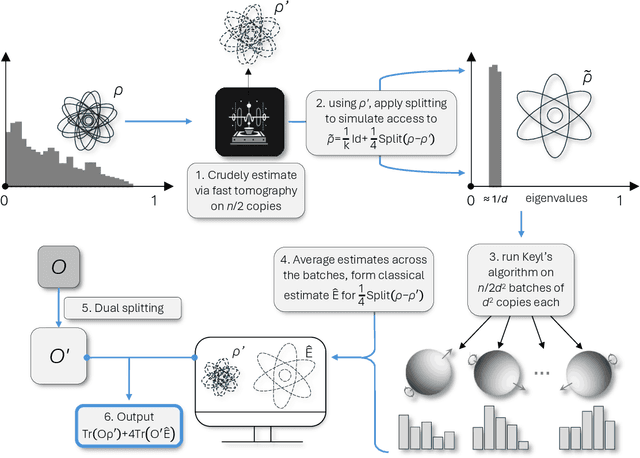Optimal high-precision shadow estimation
Paper and Code
Jul 18, 2024
We give the first tight sample complexity bounds for shadow tomography and classical shadows in the regime where the target error is below some sufficiently small inverse polynomial in the dimension of the Hilbert space. Formally we give a protocol that, given any $m\in\mathbb{N}$ and $\epsilon \le O(d^{-12})$, measures $O(\log(m)/\epsilon^2)$ copies of an unknown mixed state $\rho\in\mathbb{C}^{d\times d}$ and outputs a classical description of $\rho$ which can then be used to estimate any collection of $m$ observables to within additive accuracy $\epsilon$. Previously, even for the simpler task of shadow tomography -- where the $m$ observables are known in advance -- the best known rates either scaled benignly but suboptimally in all of $m, d, \epsilon$, or scaled optimally in $\epsilon, m$ but had additional polynomial factors in $d$ for general observables. Intriguingly, we also show via dimensionality reduction, that we can rescale $\epsilon$ and $d$ to reduce to the regime where $\epsilon \le O(d^{-1/2})$. Our algorithm draws upon representation-theoretic tools recently developed in the context of full state tomography.
 Add to Chrome
Add to Chrome Add to Firefox
Add to Firefox Add to Edge
Add to Edge